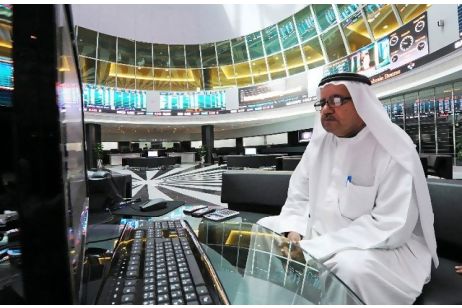Proposed US-EU trade deal may impact business in GCC: report

Gulf Times | 26 August 2013
Proposed US-EU trade deal may impact business in GCC: report
By Pratap John/Chief Business Reporter
The proposed Transatlantic Trade and Investment Partnership (TTIP) between the US and Europe will impact the GCC region’s aviation, energy and financial services’ sectors, a report has shown.
International trade experts estimate that it will affect 30% of global trade. It will also have far reaching ramifications for business in the GCC, Hill and Knowlton Strategies has said.
The first round of TTIP talks took place in Washington from early July 2013 with the next round scheduled for October in Brussels. Both sides aim to conclude the agreement by 2014-end.
Already American and European industry leaders have begun angling to protect their interests and, with GCC-EU trade valued in 2011 at $170bn annually and US-GCC valued at $100bn, GCC industries must act now to do likewise.
On the TTIP impact on GCC industries and sectors, Hill and Knowlton Strategies said standards adopted under the partnership will become globally binding with third party trading countries and they will have significant impact on the aviation, energy and financial services sectors.
Specifically, the report said this could mean that the GCC energy sector will have to comply with rigorous sustainability standards as demand grows for clean energy solutions, while the financial services sector will face a new regulatory environment of corporate governance, accountability and transparency.
In the aviation sector, TTIP negotiations could result in the emergence of transatlantic carriers with transnational ownership and control structures, Hill and Knowlton Strategies said. With the EU and the US home to nine out of the 10 top global airlines by reported revenue in 2011 this would increase momentum for global reform of ownership and control rules.
While many aviation market access barriers such as route restrictions, frequencies, capacity and pricing have already been lifted, there are some remaining critical barriers that will be discussed in TTIP negotiations.
For example, preferential treatment may be granted reciprocally to European and American airlines under TTIP, putting third-country companies like Emirates, Etihad and Qatar Airways at a disadvantage, the study said.
Energy security and access to energy are high on the US-EU agenda and TTIP will certainly not adopt any provisions that would jeopardise relations with the GCC or affect imports of crude oil or LNG.
However, TTIP would create the largest global market for energy imports and both the EU and US have stated that the emphasis will be on the unrestricted as well as sustainable access to raw materials. This would pressure GCC providers, like Sabic and Qatargas, to comply with sustainability standards.
In addition, if the US decides to lift its ban on the export of crude oil and increase its natural gas exports, the US could become a serious competitor to Gulf countries exporting to the EU.
Moreover, the EU intends to propose a prohibition on dual pricing to further limit the possibility for resource rich countries to distort the market.
Discussions on specific rules for energy and raw materials for state owned enterprises have also been tabled with TTIP, along with incentives to further trade in clean energy. Each of these proposals will have an impact on how GCC energy companies go about their business with the EU and US.
In the financial services sector, the initial EU negotiating mandate has signalled that the TTIP should promote regulatory compatibility, aiming to reduce costs stemming from regulatory differences. The TTIP would de facto set global financial services standards, particularly regarding surveillance, transparency and reporting requirements, as well as investor protection.
If new standards are adopted, they will likely also apply to Gulf countries’ financial services providers active in the EU or US. Such standards could entail additional compliance requirements both in these countries as well as in the Gulf.
Specifically, SWFs like Abu Dhabi Investment Authority, Saudi Arabia’s SAMA Foreign Holdings and the Kuwait Investment Authority that acquire US and European assets will be impacted by the TTIP.
“GCC industry leaders must take a proactive role in preparing for the TTIP. By monitoring negotiations and assessing their business impacts, GCC firms in the aviation, financial services and energy sectors can mitigate any costs to their operations, while also voicing their concerns through GCC-EU negotiations to ensure their interests are consolidated,” Hill and Knowlton Strategies said.





